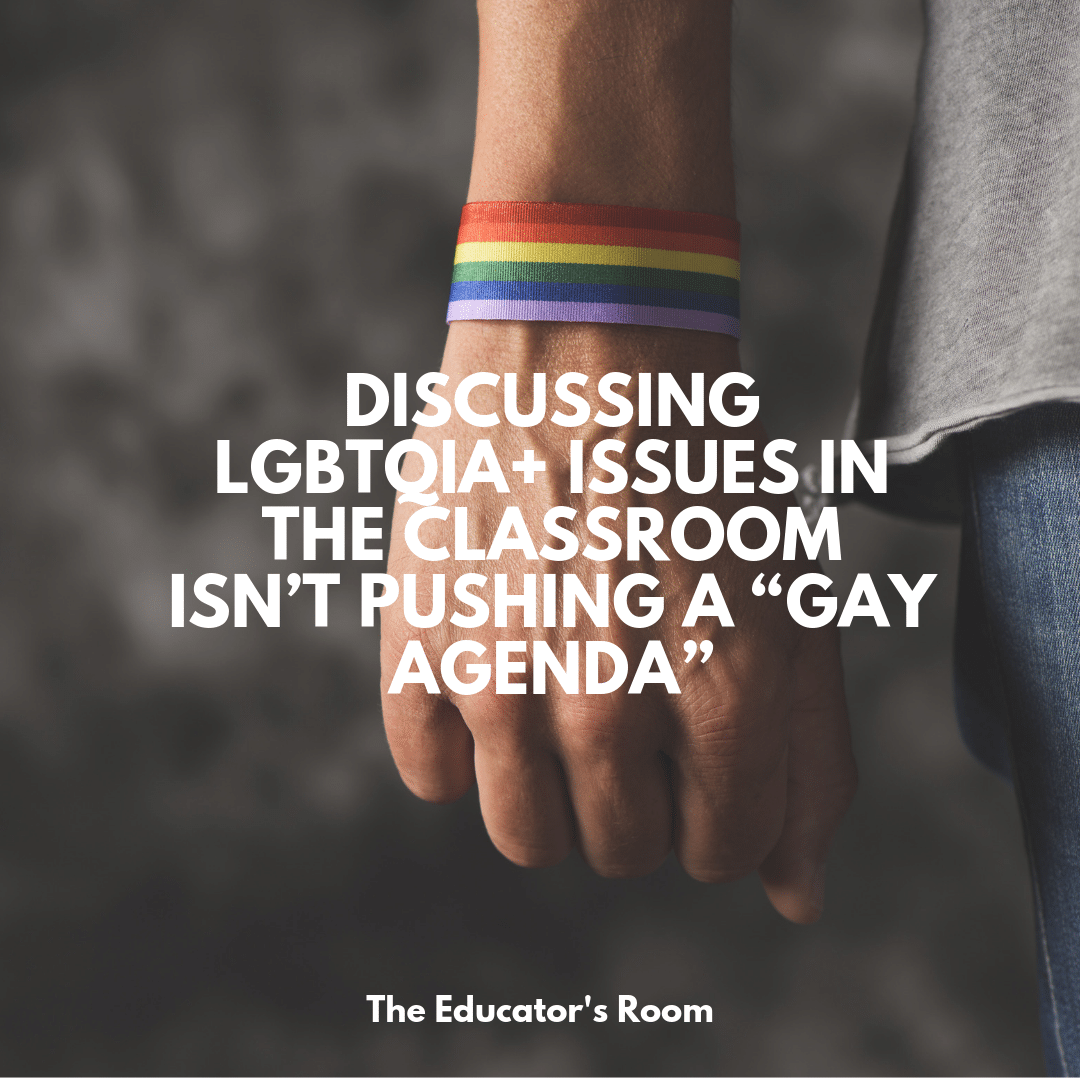Right in the middle of teaching an important and empowering 6th-grade social issues unit, I had an unexpected visit from my principal. I was told that a complaint was received about me through my school’s anonymous tip line. The complaint suggested I shouldn’t be discussing LGBTQIA+ issues in the classroom.
As we all know, you’re not a teacher unless you’ve been accused by parents, administrators, or even other teachers of “corrupting” the students in some way, but I wasn’t ready for being accused by my principal of pushing “a gay agenda.”
As a teacher who is a lesbian, I am always worried my identity is going to somehow cost me professionally. This is a real fear that most members of the LGBTQIA+ community have faced or will face in the workplace during their lifetimes. However, mentioning this particular group of people was done in the context of a unit that requires the students to directly analyze the world’s injustices. My class discussed different groups of people and the discrimination those groups face. We talked about racism, religious discrimination, discrimination based on nationality, gender, age, and ability, among other topics. And yes, we talked about the LGBTQIA+ community. Even if the educational context had been something totally unrelated, why is teaching students to stand up against the mistreatment of a group of people equated with pushing an agenda?
[bctt tweet=”As a teacher who is a lesbian, I am always worried my identity is going to somehow cost me professionally. ” username=””]
The last time I checked, people belonging to the LGBTQIA+ community aren’t out there on Saturdays knocking on doors and handing out pamphlets to try to convert those poor, heterosexual souls. It is absurd to assume that belonging to any one particular group automatically equates to a teacher looking for converts among the student body. Teaching my students to reject discrimination isn’t a symptom of personal bias. It’s giving students the tools to be able to identify injustice and to do something about it. Teachers, don’t we want our students to grow up to be people who actively battle injustice? Administrators, don’t you want the LGBTQIA+ community normalized so kids stop using “gay” or any other term referring to the community as a put-down? Don’t we want safer schools for our LGBTIQA+ students? Don’t we want our students to be change agents, not perpetrators of the world’s ills?
The statistics are all there. According to the GLSEN 2017 National School Climate Survey, eight out of ten LGBTQIA+ students experienced harassment or assault at school. In 2019, countries are still legalizing the stoning of LGBTQIA+ people to death. So if we are aware of what the LGBTQIA+ community faces, and if we know some people of that community will be our students, why are we being told not to talk about it?
Many educators and administrators feel like they don’t know enough about the LGBTQIA+ community to have these difficult but important discussions. As a teacher, it’s beneficial to show students you don’t know something. Modeling the process of referring to an expert shows students it’s ok to not know something, but that it is very important to seek out the necessary information. It also shows students that teachers don’t have all of the answers, and students will respect you for showing them that you are a lifelong learner. Are we being told not to talk about these important issues because our administrators aren’t willing to go to bat for us, or is it something else?
Most teachers feel that it is our job to do something to change the experience of minorities around the world, but isn’t it also our administrators’ job to back us up and be part of creating a school culture that will take action to raise up better people? Or, do we just want to claim that we “celebrate” diversity so we can put it up on the school’s marquee?







Welcoming Schools and Gender Spectrum are AMAZING resources for classrooms and for your staff to be trained on the importance of inclusivity. Hopefully all administrators get the training they need to be a leader for all students…